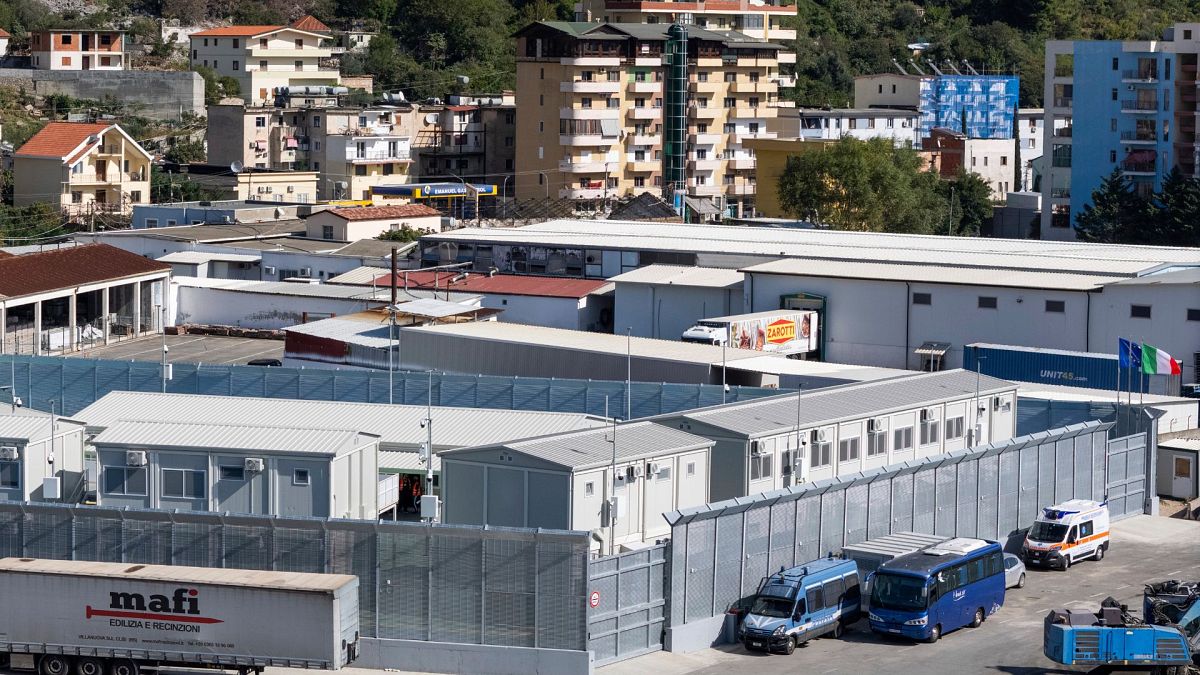Italy on Friday transferred 40 migrants denied the right to remain in the country to Italian-managed detention centres in Albania — seemingly the first time an EU member state relocated rejected asylum seekers to a third place that is neither their country of origin nor a transit one.
According to domestic media, the group departed from the port city of Brindisi, though authorities have yet to confirm the migrants’ nationalities or further details.
The individuals are now being held at two Italian-built and operated facilities in Shëngjin and Gjadër, which were initially constructed to process asylum claims for migrants intercepted in the Mediterranean Sea.
However, since their launch in October, legal challenges have restricted full use of the centres, with some migrants returned to Italy after courts refused to uphold their detention abroad.
The duration of the migrants’ stay in Albania remains unclear, though under Italian law, rejected asylum seekers can be held for up to 18 months pending deportation.
Legal and human rights concerns
The transfers come after Prime Minister Giorgia Meloni’s government recently ordered the Albanian fast-track asylum centres to also detain rejected asylum seekers facing deportation.
Rights groups and legal experts have denounced the move, raising concerns over the legality and precedent it may set.
“They need to show they are doing something with this incredibly expensive structure,” said Meghan Benton of the Migration Policy Institute.
She noted that other EU countries, including the Netherlands, have expressed interest in similar arrangements with states like Uganda.
Francesco Ferri, a migration expert with ActionAid who joined a delegation of NGOs and Italian lawmakers monitoring the transfers in Albania, said the move lacked a clear legal basis.
He explained that there is no provision in Italian law, EU legislation or the Albania-Italy agreement that permits such deportation of rejected asylum seekers.
“For us it is unacceptable,” he said.
Since the signing of the €800 million bilateral deal in November 2023, the centres have largely remained inactive due to legal barriers and pressure from human rights groups who argue the agreement violates international law and endangers migrants’ rights.
Under the five-year agreement, up to 3,000 migrants intercepted by the Italian coast guard in international waters each month can be processed in Albania. Those granted asylum are relocated to Italy, while others face deportation directly from Albanian soil.
However, the first three groups of 73 migrants transferred last autumn and winter were returned to Italy within hours, as magistrates refused to validate their detention outside the EU.
According to Italy’s Interior Ministry, 11,438 migrants have landed on Italian shores so far this year — fewer than the 16,090 recorded during the same period last year.

